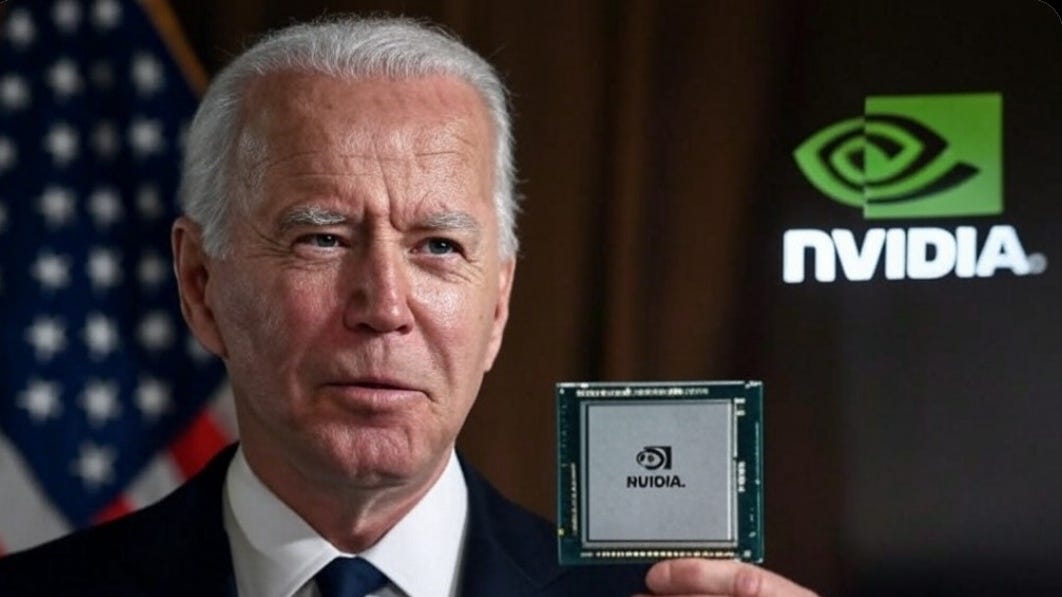📰 Nvidia Criticizes Biden’s AI Chip Export Restrictions
New AI chip export rules raise concerns over global innovation and U.S. leadership.
The Biden administration's new regulations on AI chip exports are drawing strong criticism from Nvidia NVDA 0.00%↑, one of the world’s largest producers of advanced chips. Nvidia’s Vice President of Government Affairs, Ned Finkle, called the proposed rules “unprecedented and misguided,” warning that they could harm global innovation and economic growth. The regulations divide the world into three tiers: the U.S. and its 18 closest allies will have unrestricted access to advanced U.S. chips, while other nations will face limits on their chip imports. Countries like China, Russia, Iran, and North Korea will continue to face outright bans on accessing these technologies.
Finkle argues that the export restrictions will not improve U.S. national security but instead impose bureaucratic controls over technologies already widely available in consumer hardware. He warned that this could weaken America’s global competitiveness and hinder the innovation that has kept the U.S. at the forefront of AI development. Nvidia, which relies heavily on international markets such as China for a significant portion of its revenue, expressed concern that these restrictions could push countries toward non-U.S. alternatives, including those produced by Chinese companies.
The proposed rules reflect the Biden administration’s growing focus on limiting the global reach of advanced AI technologies to prevent adversarial countries from enhancing their military and cyber capabilities. However, experts argue that overly restrictive policies could backfire, driving global innovation away from U.S.-led supply chains and potentially weakening alliances with key partner nations. Critics also warn that such policies could lead to the fragmentation of the global tech market, with countries seeking alternatives outside U.S. influence.
The debate surrounding the export controls highlights the broader geopolitical tensions between the U.S. and China, with the global race for technological supremacy at stake. Critics, including those in the semiconductor industry, worry that these measures could stifle progress in AI development and harm U.S. tech companies in the long term. While the Biden administration’s goal is to safeguard national security, the challenge lies in balancing security concerns with maintaining leadership in AI and fostering global technological advancement. In the end, the question remains whether these export restrictions will ultimately bolster or hinder U.S. dominance in the AI field.
Source: Reuters, Business Insider, The Edge Malaysia
Disclaimer:
The information and opinions provided in this article are for informational and educational purposes only and should not be considered as investment advice or a recommendation to buy, sell, or hold any financial product, security, or asset. The Future Investors does not provide personalized investment advice and is not a licensed financial advisor. Always do your own research before making any investment decisions and consult with a qualified financial professional before making any investment decisions. Please consult the general disclaimer for more details.



